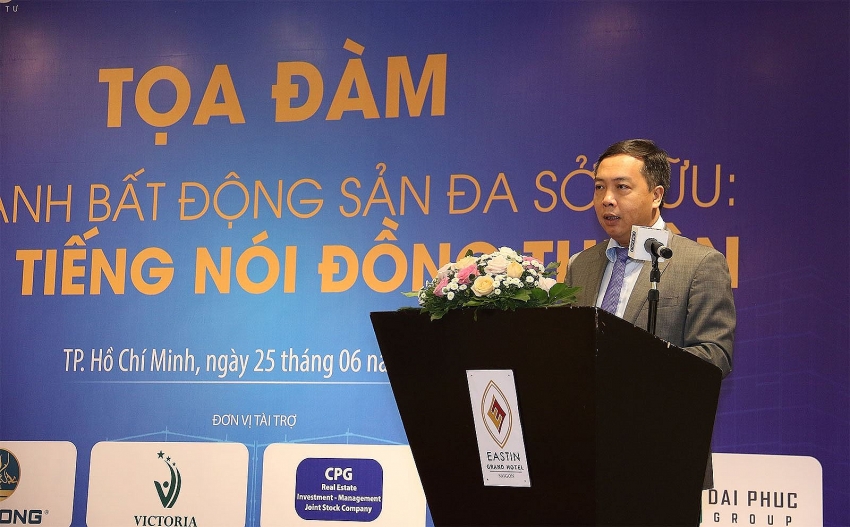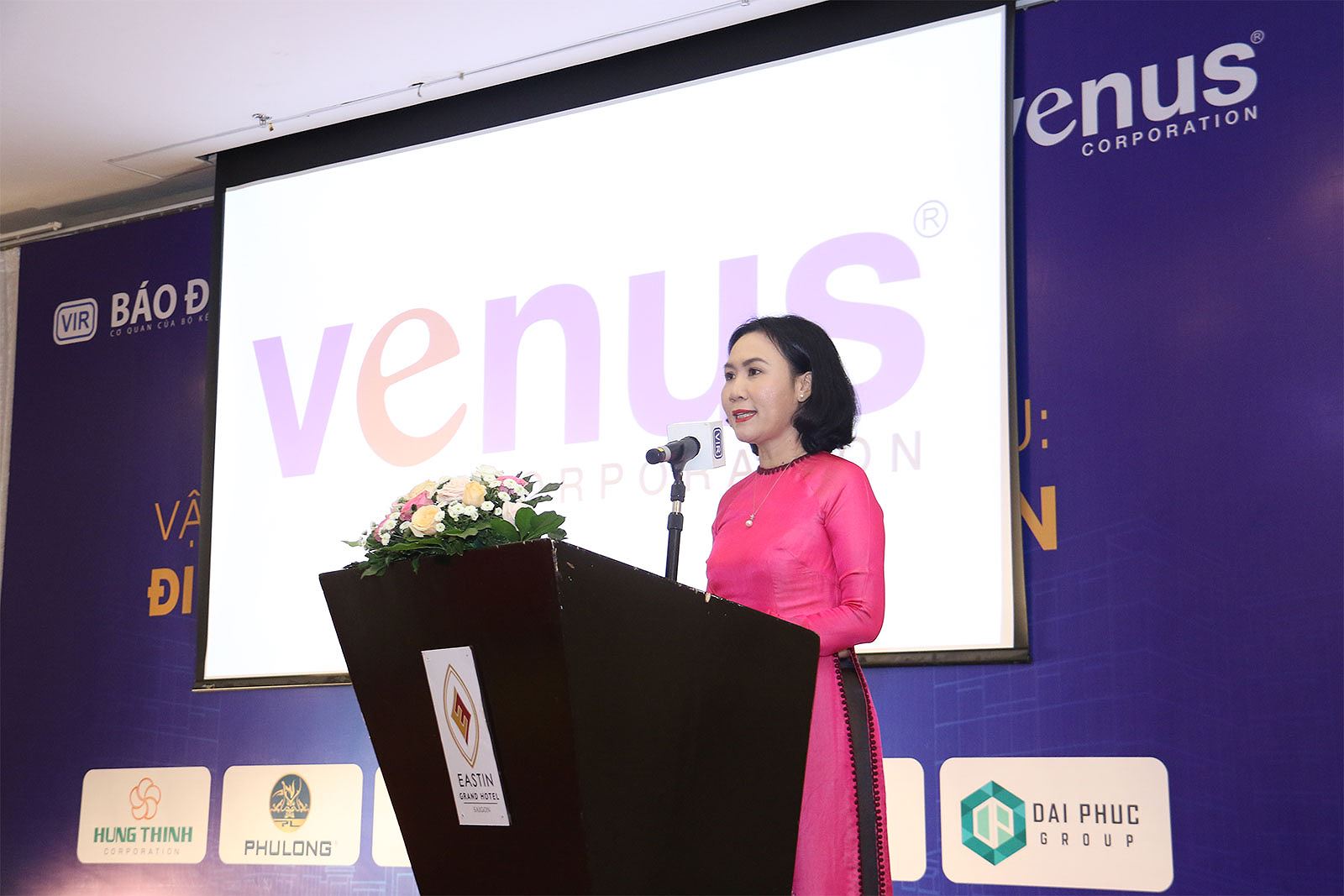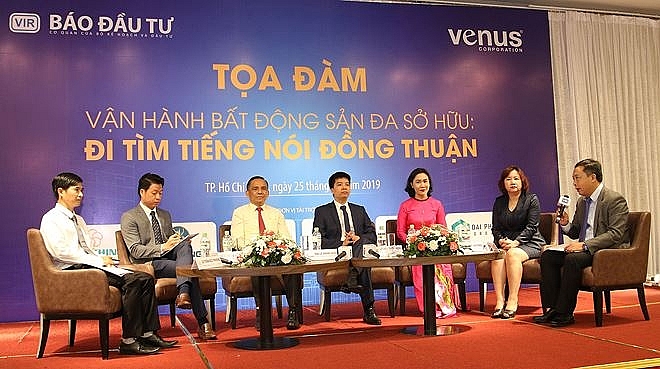Co-organised by Vietnam Investment Review and Venus Corporation, the seminar with the theme “Multi-owned Properties: Finding a Common Voice” discussed disputes at high-rise apartment buildings and collected opinions from developers and experts.
According to Le Trong Minh, editor-in-chief of Vietnam Investment Review, the most widely-used reasons behind these disputes are land reclamation, land clearance, and other civil matters.

Editor-in-chief of Vietnam Investment Review Le Trong Minh opened the seminar. (Photo: Le Toan)
"Conflicts at high-rise apartment buildings have been increasing to a level that solutions must be found to make the market of apartment buildings in Vietnam more stable and favourable for the residents," Minh said.
Conflicts arise between the buildings’ investors and their management boards, or investors and residents, as well as to disputes related to land recovery and compensation for land clearance and building quality.
According to the law, residents – before receiving their apartments – have to shell out 2 per cent of the apartment’s value as maintenance fee, with the fund under the temporary management of the apartment building’s investors. When the building’s management board is established via a vote by the residents, the investors have to hand over the fund to the board.
However, the Ministry of Construction's (MoC) report stated that at many projects, residents have claimed that the investors misappropriated this fund to use for other purposes.
Other reasons for disputes included unclear regulations on management and the use of buildings such as the calculation of the apartment area, balcony area, the technical box, and general and private areas.
Additionally, some unqualified investors deliberately violated regulations on construction investment, housing, real estate business, and fire prevention.
Apartment buyers are also remiss in considering all terms of the signed contracts, particularly the terms related to the rights and obligations of the parties in the management and use of the house.
Nguyen Ngoc Huong, general director of Venus Corp., credited that high-rise apartment buildings operate mostly stably in the first three years.

In minimising conflicts between developers and residents at high-rise apartment buildings, according to Nguyen Ngoc Huong, general director of Venus Corporation, one of the foremost factors is to provide enough information to residents. (Photo: Le Toan)
“Disputes, however, usually arise from the fourth year when the infrastructure system begins to reveal the first signs of degradation, especially lifts, fire equipment, fresh water supply, and drainage systems. All of these are important factors impacting the residents' life, and are pain points that can easily lead to conflict,” Huong said.
“They [residents] must be more informed about what their rights and obligations are and obey regulations accordingly,” Huong said.
The operators, on the other side, Huong added, must ensure the security and the safety of the project, as well as keeping the project running in prime condition. Apart from that, the good operation also helps increase the value of the asset, especially after some years of being put into operation.
“Life does not stop, so the legal framework also needs to be revised accordingly to suit the flow of the real life and the development of the real estate market,” Huong added.

Experts, developers, and operators were discussing solutions for disputes with residents. (Photo: Le Toan)
Vietnam is one of the countries enjoying the fastest pace of urban development in the world with the urbanisation at the end of 2019 estimated at around 40 per cent. By the 2040s around 50 per cent of the country's population will live in urban areas.
This leads to a remarkable increase of multi-owned properties in Vietnam, especially high-rise apartment buildings and residential areas.
The fast growth of the property market in the recent past has provided dozens of thousands of apartment units launched every year and has given rise to the industry of operation and management of such properties with hundreds of domestic and international services providers.
The fast increase of the property market has also been causing many conflicts among related sides such as property developers, residents, and operators which puts professional management and operation skills in ever higher demand.
According to the MoC, to March 2019 less than 500 apartment building projects in 43 cities and provinces have been embroiled in disputes, occupying more than 10 per cent of the total number of apartment buildings nationwide. Among those, Hanoi and Ho Chi Minh are leading the list with more than 1,100 and 1,440 buildings, respectively.


















